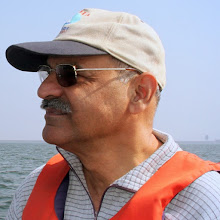Finally, Moily takes a call….
Well, finally Dr Moily has decided to promulgate a ‘National Litigation Policy’ which takes care of some of the issues highlighted by us in the recent past which also formed part of communications sent to the Law Ministry. I am also happy to inform that the Law Ministry has dealt with most of our points in the new policy and that the step is bold in the sense that it is for the first time that there has been an indication of a holistic overhaul of the legal system.
‘The Hindu’ has reported on the development. It is a welcome and a notable move, however the lower level babudom would still manage to exercise leverage in the various caveats and provisos of the policy which are aplenty if what is stated by the newsreport is taken to be correct. Also this idea of appealing against Court verdicts in cases involving ‘financial implications’ should be dumped forever since an illegality cannot be allowed to sustain on the pretext that its rectification shall burden the exchequer. In a democracy, financial burden can never be an excuse to perpetrate something that is declared illegal or arbitrary.
We would have to analyse its effect in practice but I’m sure the Law Ministry would be open to more suggestions in case of any pitfalls. Here is a reproduction of the newsreport :
With the huge backlog of cases continuing to clog the wheels of justice, Union Law Minister M.Veerappa Moily on Wednesday launched a new policy initiative to ensure that government departments and agencies become more “responsible” in filing and pursuing cases.
Recognising that the departments and agencies contribute the maximum to court cases, the new ‘National Litigation Policy' enjoins on these organisations to think twice before resorting to litigations, as well as in pursuing them.
The policy statement makes it very clear that, “litigation will not be resorted to for the sake of litigating” and that “false pleas and technical points will not be taken.” It also lays down that correct facts, all relevant documents should be placed before the court and that nothing should be suppressed or an attempt made to mislead any court or tribunal.
The policy also directs that “the Government must cease to be a compulsive litigant” and states that, “the philosophy that matters should be left to the courts for ultimate decision has to be discarded” and that “the easy approach, ‘let the court decide' must be eschewed and condemned.” Drafted by the office of Attorney-General G.E. Vahanvati, the policy provides a set of tools for its implementation, including a provision for appointment of well-trained nodal officers, with adequate legal background and expertise by each and every department and agency for a “pro-active” management of its cases and constitution of empowered committees to monitor the implementation of the policy.
Acknowledging that frequent adjournments are resorted to by government lawyers, the policy states: “unnecessary and frequent adjournments would be frowned upon and infractions dealt with seriously.” Defaulting lawyers may even have their names removed or suspended from government panels.
The policy also provides that in service matters, no appeal would be filed in cases where the matter pertains to an individual grievance without any major repercussion or where the matter pertains to a case of pension or retirement benefits without involving any principle and without setting any precedent or financial implications.
Further, an appeal would not be filed in service matters merely because the order of the Administrative Tribunal affects a number of employees and appeals would not be filed to espouse the cause of one section of employees against another. Challenges to orders of Tribunals would be an exception rather than a matter of routine. Mr. Moily said that in keeping with the new policy, all pending cases involving the government would be reviewed and categorised in order of priority so that they could be disposed of quickly.
Noting that the monitoring and review mechanism proposed under the policy would help prevent delay and neglect of important cases, he said, “May be, cases like the Bhopal case would not be repeated.” Asked about the curative petition that the Group of Ministers (GoM) have recommended on the Bhopal case, Mr. Vahanvati, who was also present at the launch function, said, the Law Minister had only made a suggestion before the GoM and that it was not a considered opinion. The GoM's recommendation had to first go to the Union Cabinet for approval before any follow up measure could be taken up. In response to a question, he acknowledged that the 1996 Supreme Court order judgment “wrong as a matter of law,” he said: “I am not criticising the judgment. [But,] I am entitled to tell you that it is wrong. I say it as a matter of law. I believe there are contradictions in the judgment and there are lot of material that have come up post that judgment.” The Attorney-General pointed to evidence that people knew that there were some flaws in the factory and that they were not rectified as matter of economy.




No comments:
Post a Comment